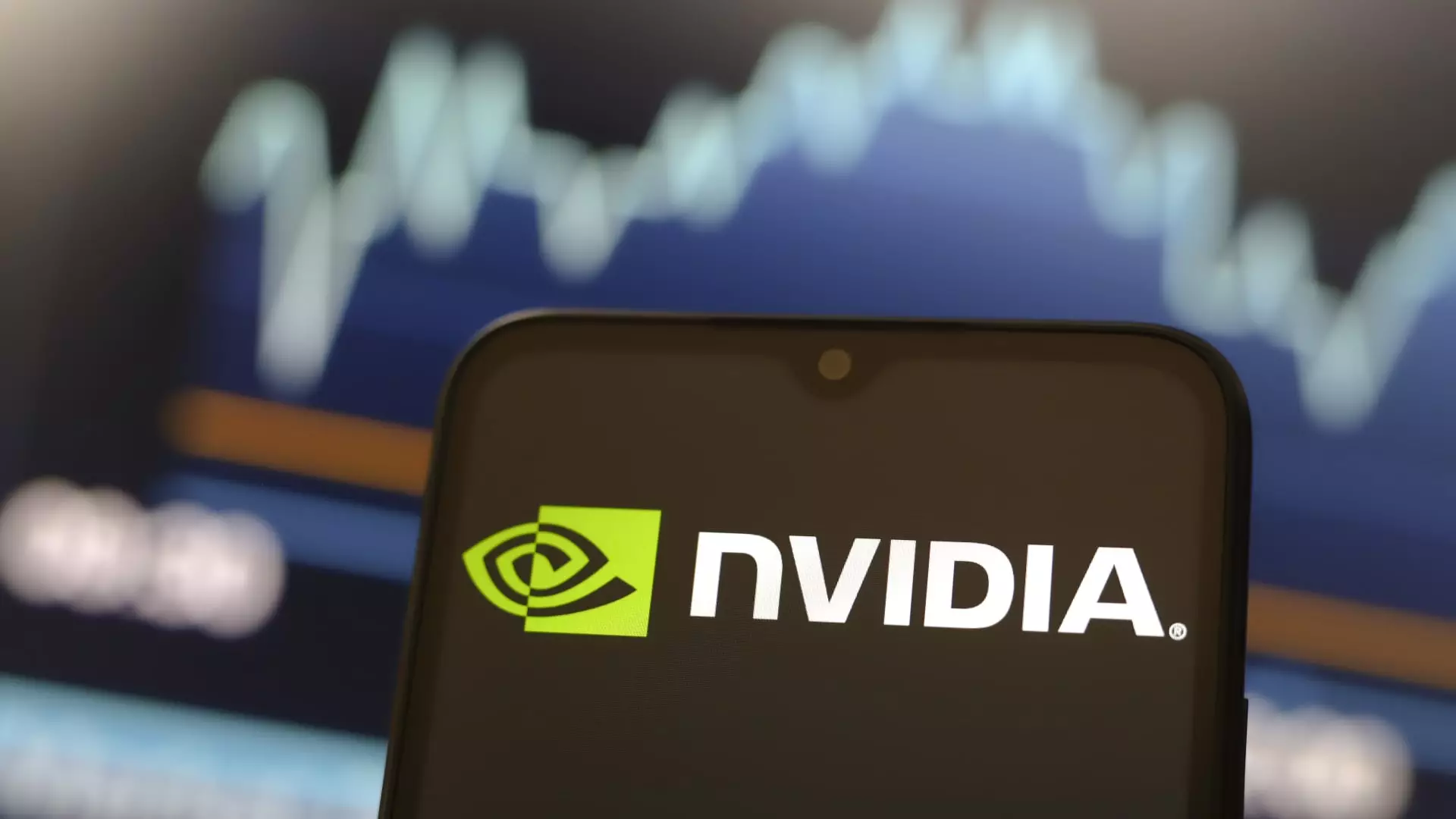The world of midday trading has been electrifying, characterized by significant volatility and marked declines across technology stocks, particularly those associated with artificial intelligence (AI). The situation appears to stem primarily from recent developments involving a Chinese startup, DeepSeek, which has raised concerns about the viability and sustainability of heavy investments in AI technologies.
Nvidia, a semiconductor titan and a leading player in AI hardware, experienced a staggering drop of nearly 17%. The uproar began after DeepSeek showcased a language model that seemingly posed questions regarding the efficiency of Nvidia’s AI investments. As a result, Nvidia encountered one of its worst trading days in recent memory, worrying investors who had bullish outlooks on the AI sector.
However, it wasn’t only Nvidia in the crosshairs. The fallout cascaded through the semiconductor industry, affecting giants such as Broadcom and Micron, which saw their stock prices decline by over 17% and 11%, respectively. Advanced Micro Devices (AMD) also followed suit with a loss of more than 6%, and the VanEck Semiconductor ETF witnessed a nearly 10% dip. This widespread sell-off reflects a collective investor sentiment that is skeptical about the return on investment in AI technologies, leading to fears of a deeper correction ahead.
The repercussions of DeepSeek’s revelation were felt not just by dedicated AI hardware firms; other tech giants, including Microsoft and Oracle, similarly faced downward pressure. Microsoft, which has announced intentions to invest $80 billion in constructing AI data centers over the next year, saw stocks slide more than 2%. While this might seem like a strategic long-term investment, today’s investors are wrestling with the immediate concerns over market performance and the sheer volatility of the sector.
On the other hand, Oracle’s stock decreased more than 13%. Their involvement in the recently unveiled AI infrastructure project, Stargate, led by President Trump, raises further questions about whether current forecasts will hold up against the realities of market demands. Such uncertainties cloud the landscape for tech companies that aspire to harness the potential of artificial intelligence.
In addition to tech firms, companies in the energy sector that are positioned to support AI data centers faced serious headwinds. Constellation Energy and Vistra suffered declines exceeding 20% and 28%, respectively, indicating the investor skepticism about the future utility of these projects. General Electric and Talen Energy also saw their values drop by over 21%.
Furthermore, stocks linked to the cryptocurrency market also felt the impact of the tech sell-off. Coinbase and MicroStrategy faced losses of about 6% and 1% respectively, but the real pain was seen among Bitcoin miners. Companies like Core Scientific and TeraWulf registered alarming declines, dropping nearly 29%, while Iren fell more than 24%. The interconnectedness of these markets highlights the sensitivity of investor confidence; as tech stocks decline, so too does the faith in the broader market landscape.
Despite the prevailing storm of declines, certain companies managed to defy the odds. AT&T’s stock rose over 6% after reporting fourth-quarter adjusted earnings that surpassed analyst expectations, showcasing the continuing demand for telecommunications even in challenging conditions. Similarly, Travel + Leisure’s stock advanced just over 2% following a notable upgrade from Bank of America, indicating a more optimistic outlook for the leisure and travel sector amidst the chaos.
Yet, not every company experienced a positive turn. SoFi Technologies saw a dramatic 10.3% drop, even following better-than-expected earnings, illustrating how outlooks can sometimes overshadow performance. On the other hand, Titan Machinery capitalized on positive recommendations, seeing its shares jump by 10.4%, providing a glimmer of hope for the retail equipment sector amid the turbulent market.
The current state of midday trading paints a complex picture as investor sentiment grapples with the implications of new AI developments. Trends suggest a wider introspection within the tech community about the feasibility and productivity of heavy investments in AI technology. This pivot may determine the trajectory of various sectors as they navigate through these uncharted waters. Only time will tell how the markets will realign in response to these evolving dynamics, but one thing is certain: the repercussions of technological advances ripple far and wide across the stock market landscape.

